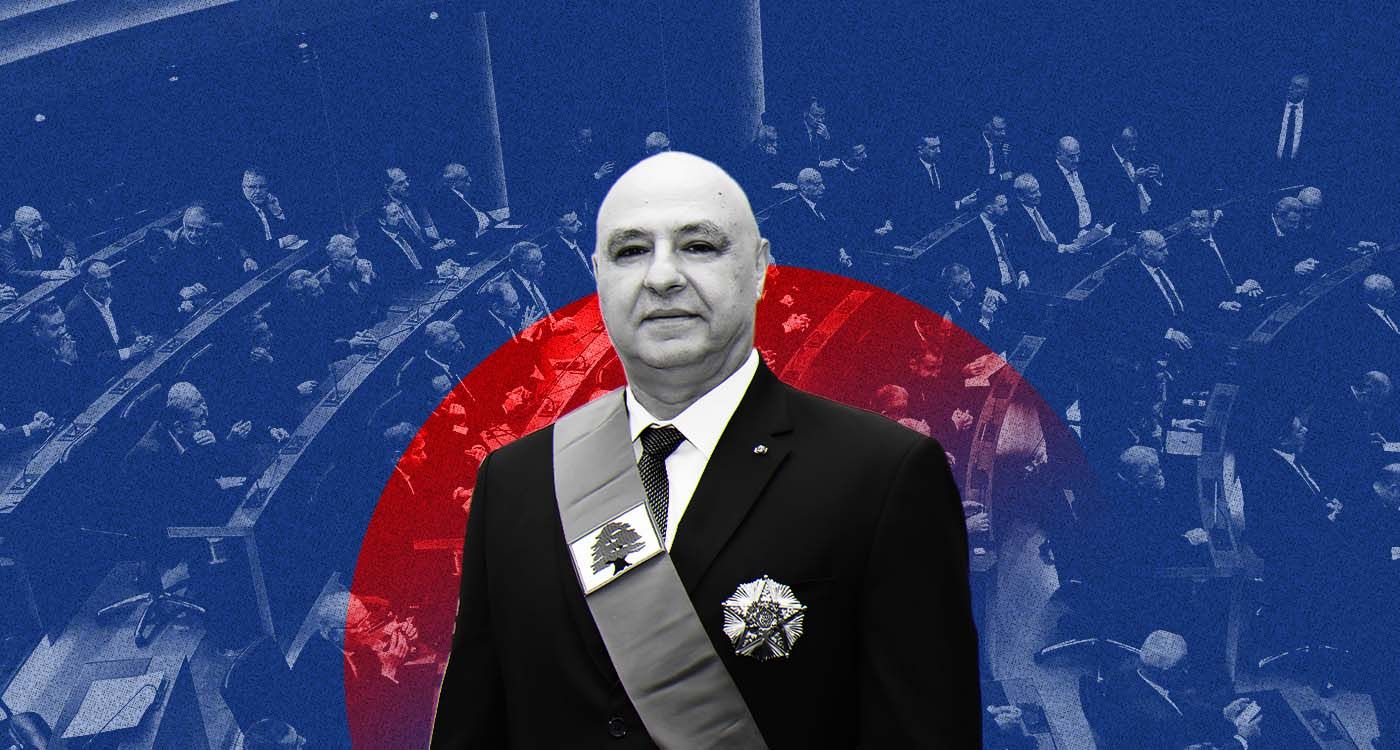
Finally, the long-awaited presidential election has taken place after two and a half years of deliberate sabotaging and unjustified procrastinations. Whatever might have been the intricacies of the electoral process, the constitutional mandate would have never taken place if it were not for the changing dynamics elicited by the Israeli counteroffensive, the defeat of Hezbollah, the downfall of the Syrian regime, and the erosion of the Iranian pillars in the Middle East. The stalemated presidency was not arbitrary; it was part of a subversion strategy and shifting objectives and timetables. The constitutional mandate was irrelevant and ancillary to the calculations of a domination strategy and its choreography.
The rising political dynamics permuted the rules of the ongoing game and reset the overall political agenda. Hezbollah, its acolytes, and mentors were confronted with the hard facts of a transforming regional landscape and the destruction of the operational platforms that enabled the Iranian power politics to reshuffle the overall configuration. Hezbollah and its allies tried to outmaneuver the process and neutralize the transformative effects of the military defeat and its political consequences to no avail. It’s useless to reverse the nascent political dynamics at a time when the regional geostrategic configuration has irreversibly changed and the domestic political landscape has welcomed the timely riddance of Hezbollah’s smothering influence and its incidence on civility, polity, and stability.
The late election is not pre-scripted, and the Lebanese, while burying the diktats of a primitive totalitarianism and its impact on mundane politics, are trying to reshape their political subjectivity and engage in the hard task of rebuilding their political life around the notions of constitutional governance, political pluralism, and transitional justice. In contrast, Shiite fascism has a hard time coping with the emerging reality and shelters behind blinders and psychotic defenses as an attempt to fend itself off from reality. Whatever rumors are disseminated by Hezbollah and its allies regarding the outcomes of the election, they all convey its delusions, its inability to admit the defeat and recant its sense of omnipotence, and its incapacity to reengage the basic rules of democracy. There are no chances for a normalized political life without challenging the well-entrenched power politics and their actors at both the domestic and regional levels.
The election of the LAF commander was mandated by the urge to stabilize the country, uphold the fledgling institutions of a battered democracy, and pave the way for reconstructing the matrices of working statehood, democratic ethics, and civil peace. The incoming presidency is bound by international political conditionalities structured around the truce agreement and its stipulations: the enforcement of international resolutions 1701, 1559, and 1680; the elimination of military and political extraterritorialities (Hezbollah and Palestinian camps); the disarmament of the paramilitaries; and the systematic takeover of LAF seconded by the UNIFIL. This is the preliminary mandate of the incoming presidency and its primary testing.
Its failure inevitably puts at stake the viability of Lebanon, its democratic institutions, and the likelihood of civil concord. Political actors should be ultimately convinced that the erstwhile political scenarios are redundant and the political game should be rejuvenated while adapting to the changing geostrategic landscape, reappropriating the norms of a functioning consociational democracy, and distancing themselves from the disruptions of boisterous regional power politics. The inaugural statement of the incoming presidency was quite explicit about these issues and the need to weave the political arrangements on their very basis.
The implementation of the international resolutions should serve as a stepping stone to end the never-ending cycles of violence between Lebanon and Israel and its ideological grounding. The need for a peace treaty between the two countries is compelling if we are to stabilize our country and contribute to the regional peace advocated by a long-standing trail of peace agreements and the late Abraham Accords. Short of the systematic overhauling of the policy process and its intellectual premises, Lebanon runs the danger of revisiting its historical impasses and undermining the chances of rehabilitation and national reconciliation.
The dynamics of reconstruction should address the very symptomatic financial crisis and its deleterious consequences. The oligarchic nature of the post-war political predicament accounts largely for the causes of the financial debacle. The absence of a democratic debate and arbitration between the various options that should guide the reconstruction strategy explains the causes of the debt strategy, its oligarchic foreclosures, and the prevalence of the vulture funds over the multilateral and bilateral borrowing schemes, and the role of political stabilization in securing and strengthening international investments.
The oligarchic decision-making process has made possible the crisis and accounted for its hijacking by the corrupt political class and its regional political mentors (Syrian and Iranian occupations and Arabian financial oligarchies). The discretionary disposal of banks’ deposits and its structured sequencing along a continuum that extends between the banks, the central bank, the succeeding governments, and parliaments overseen by the alternating power players explains how the explicitly battered sovereignty paved the way for the monumental robbery. The new presidency should confront head-on the everlasting financial crisis and put on track an internationally monitored solution and its legal frameworks.
The formation of a new cabinet away from the well-entrenched oligarchic tropism is mandated if we are to oversee an end to the state of political prostration and moral helplessness we are relegated to. Any search for accommodation with the political oligarchies and Hezbollah, who have hijacked the country for the last 35 years, is a recipe for another disaster that will doom the future of Lebanon.




Comments